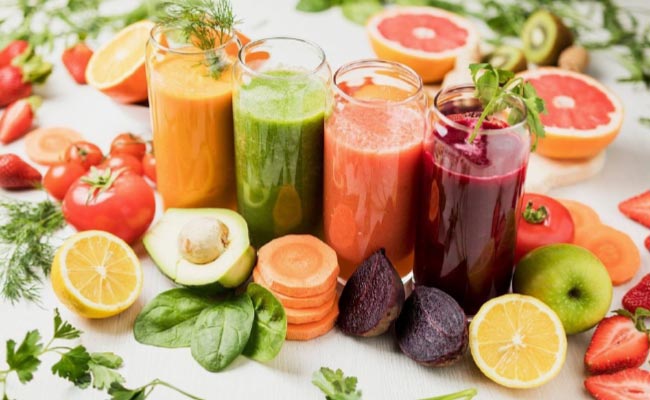
What meat is better for Diabetics to eat?
2024-07-02
Beer taste good, but don’t drink too much!
2024-07-231.Fruit and vegetable
Ensure that there are no less than 12 kinds of vegetables, fruits, soybeans, nuts and other food varieties every day, and no less than 25 kinds per week. Reasonably adjust the energy ratio provided by carbohydrates, proteins and fats in meals. Nutrients such as vitamins and phytochemicals can promote the excretion of uric acid in the kidneys and reduce uric acid. Fresh vegetables and other foods are usually rich in phytochemicals, which have a certain effect in reducing uric acid levels, helping to improve high uric acid and reduce the risk of gout attacks. It is recommended to eat more fresh vegetables every day. It is recommended that the daily intake is no less than 500g. Dark vegetables (such as purple cabbage and carrots) should account for more than half.
The recommended daily intake of fruit is 200-350g.
2.Milk and dairy products
Milk protein is an important source of high-quality protein and can promote the excretion of uric acid. It is encouraged to consume more than 300mL or an equivalent amount of milk and milk products every day.
3.Drink water
Drinking water regularly can promote uric acid excretion. People with high uric acid and gout should drink enough water if their heart and kidney functions are normal, and 2000 to 3000mL is recommended every day. Try to maintain daily urine output greater than 2000mL. White water is preferred. Lemonade, light tea, sugar-free coffee and soda water can also be consumed, but excessive drinking of strong tea, strong coffee, etc. should be avoided.
4.Cooking method
Proper food cooking methods are of great significance for the prevention and control of high uric acid and gout. Less salt, less oil, less condiments, and lighter meals can help control or reduce uric acid levels. It is recommended that the daily salt intake should not exceed 5g, and the daily cooking oil should not exceed 25-30g. Reduce cooking methods such as frying, frying, and marinating. It is recommended to boil meat before eating and try not to drink soup. Cured, pickled or smoked meats have high purine and salt content, so people with high uric acid and gout should not eat them.
5.Limit fructose
Fructose can induce metabolic abnormalities and cause insulin resistance, and has the potential to increase uric acid levels. Foods with high fructose content, such as sugary drinks, freshly squeezed juices, fructose syrup, candied fruit, etc., should be restricted.
6.Don’t drink alcohol
Drinking alcohol increases the risk of high uric acid and gout. The metabolism of alcohol affects the release of purines and promotes increased uric acid production. Alcohol also causes an increase in serum lactate, thereby reducing uric acid excretion. Some alcoholic beverages also contain purine. Generally, rice wine has a higher purine content, followed by beer. Although the purine content of liquor is low, the alcohol content of liquor is high, which can easily accumulate lactic acid in the body and inhibit the excretion of uric acid. Therefore, alcohol consumption should be limited and patients with acute gout attacks, poorly controlled medication, or chronic gouty arthritis should avoid alcohol.
7.Eat less raw and cold food
For people with high uric acid and gout, regular consumption of raw and cold foods such as ice cream and raw and cold seafood can easily damage the spleen and stomach function, and can also lead to increased precipitation of urate crystals and induce gout attacks.
8.Exercise and diet balance
Obesity increases the risk of gout in people with high uric acid levels. On the basis of meeting the daily essential nutritional needs, by improving the dietary structure and increasing regular exercise, the energy intake is less than the energy expenditure; at the same time, excessive dieting and rapid weight loss are avoided, and it is appropriate to lose 0.5 to 1.0kg per week. Finally control your weight within a healthy range.
For overweight people, they can reduce their energy intake by 250 to 500 kcal per day and consume 250 to 500 kcal of energy through exercise. Under the principle of ensuring safety, choose sports that are suitable for you, carry out exercise step by step, gradually improve cardiopulmonary function and muscle endurance, strength, flexibility, etc., and enhance metabolism and immune function. Aerobic exercise is appropriate 4 to 5 times a week for 30 to 60 minutes each time. You can choose jogging, walking, cycling, Tai Chi, Baduanjin, swimming and other sports, and perform appropriate strength and flexibility exercises. During or after exercise, you should replenish water in time. Exercise should be reduced or avoided during gouty arthritis.
9.Restricted purine
Excessive purine intake increases uric acid production and can easily cause hyperuricemia. People with hyperuricemia and gout should choose food ingredients scientifically, focus on low-purine meals, and strictly control the purine content in their meals.
The purine content of animal offal is higher than that of ordinary meat. Egg protein, milk, etc. have low purine content and can be eaten with confidence. Although the purine content of soybeans is slightly higher than that of lean meat and fish, the purine in plant foods is poorly utilized by the human body. The purine content of soy products has been reduced after processing, so it can be eaten in moderation.




